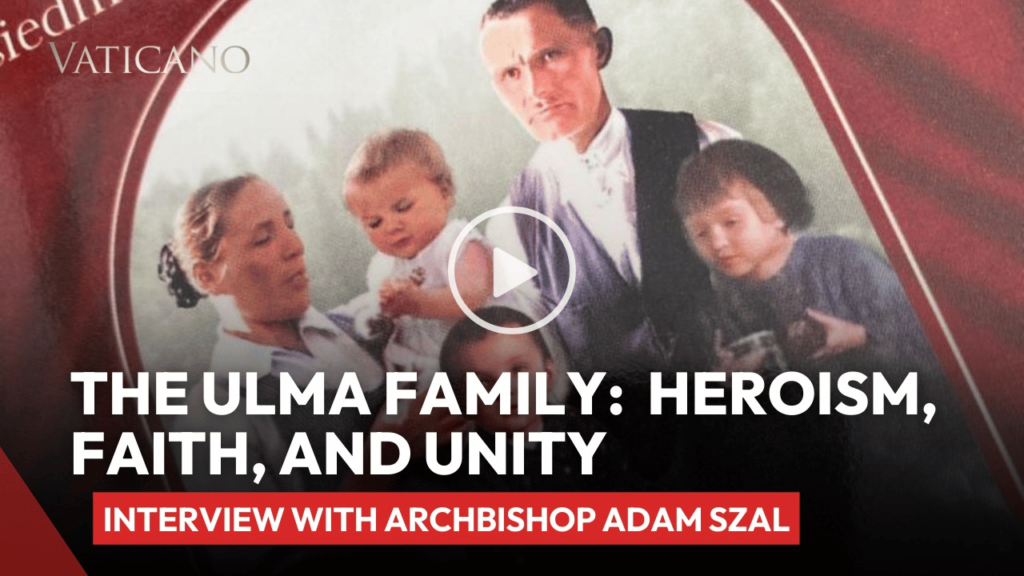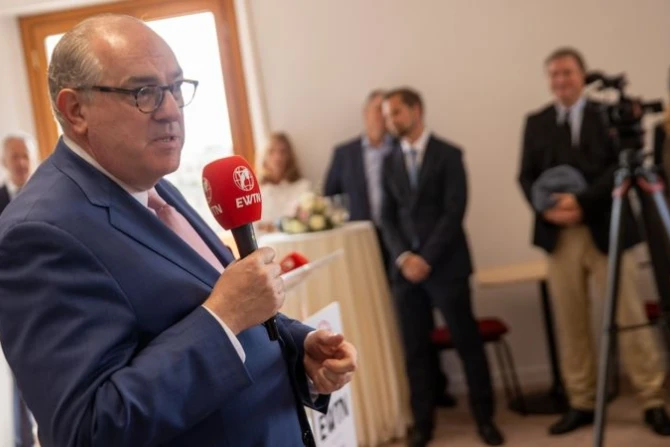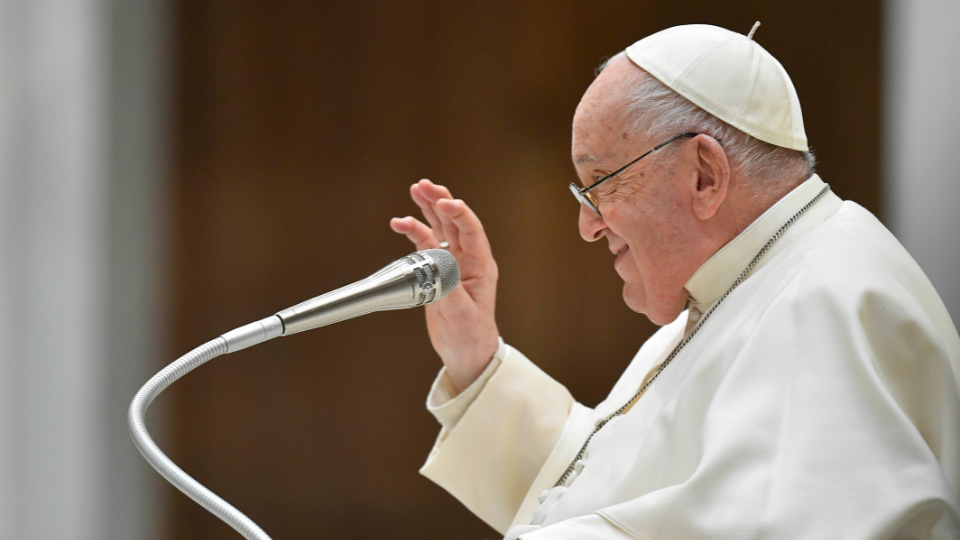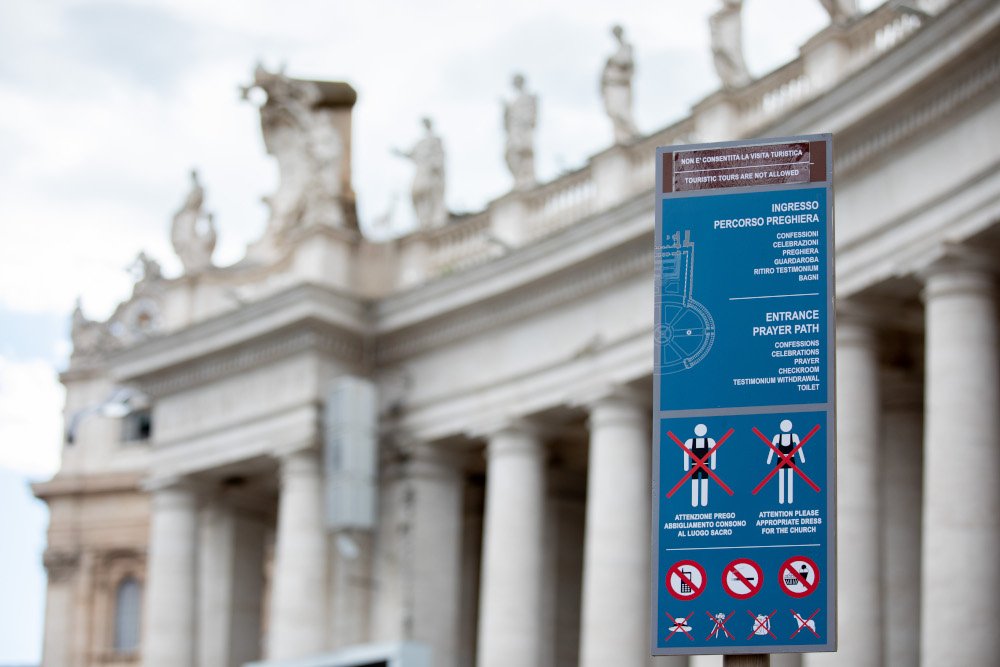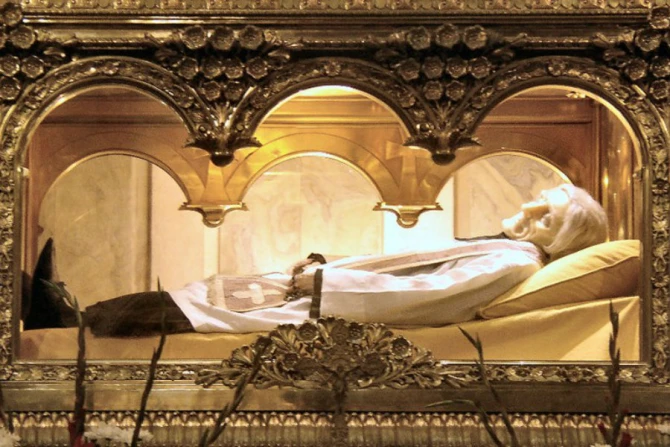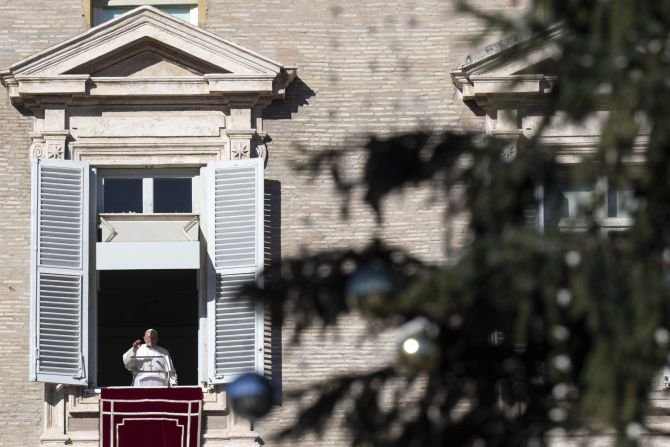EWTN Rome correspondent Matthew Santucci spoke with Archbishop Adam Szal, the Archbishop of the Archdiocese of Przemyśl in Poland. Heroism. Faith. Unity. These three characteristics were exemplified by the Ulma Family and their courageous actions during World War II. In this interview Archbishop Szal explained the profound impact their beatification has on Poland, its youth, and the broader relationship between faith and society.
Your excellency, good morning and welcome to Rome. Could speak for a moment about the relics of the Ulma family that will be traveling around Poland: what exactly are those relics and, have you seen a large interest in their cause? If so, will this tour increase interest and will this as a moment of a renewed evangelization in Poland?
We are all grateful to Divine Providence for having reached this special moment in which the beatification of the family of Josef and Wiktoria, together with their children, is taking place for us, the residents of Poland and the inhabitants of Podkarpacie. It is a special gift from Divine Providence in these very challenging times for the Catholic Church and for the family. The beatification of the entire family of Joseph and Victoria Ulma, along with their children, is a great gift from Divine Providence and also a gift when it comes to evangelization.
First and foremost, it is about the whole family standing before the entire world with a certain message, a certain mission. This mission is about persevering in marriage, about the transmission and protection of life. But, it is also a great message about living according to faith, living according to the commandment of love, and living sacramental lives. I am convinced that the beatification has infused us all with a lot of energy and strength to spread the truth about the Lord and also about the people who lived according to the commandment of love for God and neighbor.
What does this beatification mean for the life of the Church not only in their hometown but in Poland?
Beatification is a reminder of the great work – that can be called a heroic work – in which people sacrificed their lives to save others. Only in Poland, was there a heartless law that punished anyone who helped those in need, especially of Jewish nationality. And it was the Ulma family who, in the spirit of responsibility not only for themselves but also for their fellow human beings, rushed to help the residents of Poland and the inhabitants of Podkarpacie. This is an opportunity to recall the great multitude of people who helped those in need during World War II.
It is estimated that over 1,000 lost their lives while assisting individuals of Jewish nationality in any way. Certainly, there were many such examples here in Podkarpacie and these stories are inspiring. Nowadays, when I meet with the faithful from Podkarpacie, from the Archdiocese of Przemyśl, they often tell me that in their families or neighborhoods, there were people who helped, people who faced terrible consequences for their assistance, including the punishment of death.
What example can they offer us today? As the memory of the Second World War fades, do you think this will be an important moment (especially for the youth)? And, given their zeal, their example of faith, their martyrdom, what can that provide for us today – especially in the West where many countries are continuing with an intense process of secularization?
Visiting various church groups in Rome and inviting people to the beatification ceremony, I discovered with astonishment the great concern – that is very strongly articulated here in Rome – for the family. Since the family is being questioned in these difficult times, when the value of the family, the sacrament of marriage, and the acceptance of the gift of life are all being challenged, it seems to me that the issue of beatification should also encourage us, the pastors, to take an interest in the matter of the family, especially with the younger generation.
Therefore, it seems to me that the message to the younger generation is to show them a family that was ready to heroically help their fellow human beings, a family that entered into the sacrament of marriage. God willing, we will commemorate this family every year, and it will be an opportunity to reflect on the sacrament of marriage for the younger generation, which sometimes lives as if there was no God or sacrament of marriage. For the youth, this is an example of the unity of marital fidelity taken to heroism and martyrdom.
In 1995, the State of Israel gave the Ulmas the title of Righteous Among Nations, an honorific used by Israel to describe non-Jews who risked their lives during the Holocaust to save Jews. What effect will this beatification have on ecumenical relations with the Jewish people?
A few years ago, in Markowa, at the site where the Ulm family suffered martyrdom, an extraordinary dedication and opening of the museum of Poles saving Jews took place. On this occasion, one of those who survived thanks to the help of the residents of Markowa, Mr. Abraham Segal, delivered a fiery speech. In his speech, he showcased the heroism of those people who risked their lives to save other lives. As a result, the bond between the survivors and the residents of Markowa is still maintained to this day. While those who were saved and those who saved them are no longer with us due to the passage of years, their children, whom I witnessed, also come to Markowa to be living witnesses of salvation.
As we prepare for the beatification, we also want to invite representatives of the Israeli nation to this ceremony. Chief Rabbi of Poland, Mr. Michael Schudrich, has been invited, as have representatives of institutions that promote Jewish culture. Descendants of those who were sheltered in Markowa will also be invited. I think an event like this, combined with prayers at the cemetery where those murdered by the Germans are buried, and the memory of the Jews sheltered by Joseph and Wiktoria Ulma, is an opportunity to bring our nations closer together. Especially since Podkarpacie, particularly towns like Leżajsk and Dynów, are places visited by tours from Israel and by groups of devout Jews. I’m also pleased to see the beautiful tradition that organized groups of young people come to Markowa to pay their respects to Josef and Wiktoria Ulma by visiting their cemetery and places associated with sheltering Jews.
Recently, an old house, the Szlars’ house, which represents one of the Markowa houses where Jews were hidden, has been renovated and set up for visitors. This includes a presentation of the hiding place. In these difficult times, it played a significant role in sheltering individuals of Jewish nationality. Therefore, I hope that the beatification, which highlights the heroism of the Ulma family, will bring our nations closer together. After all, Josef and Wiktoria Ulma are an example of unity among people and unity between nations.

